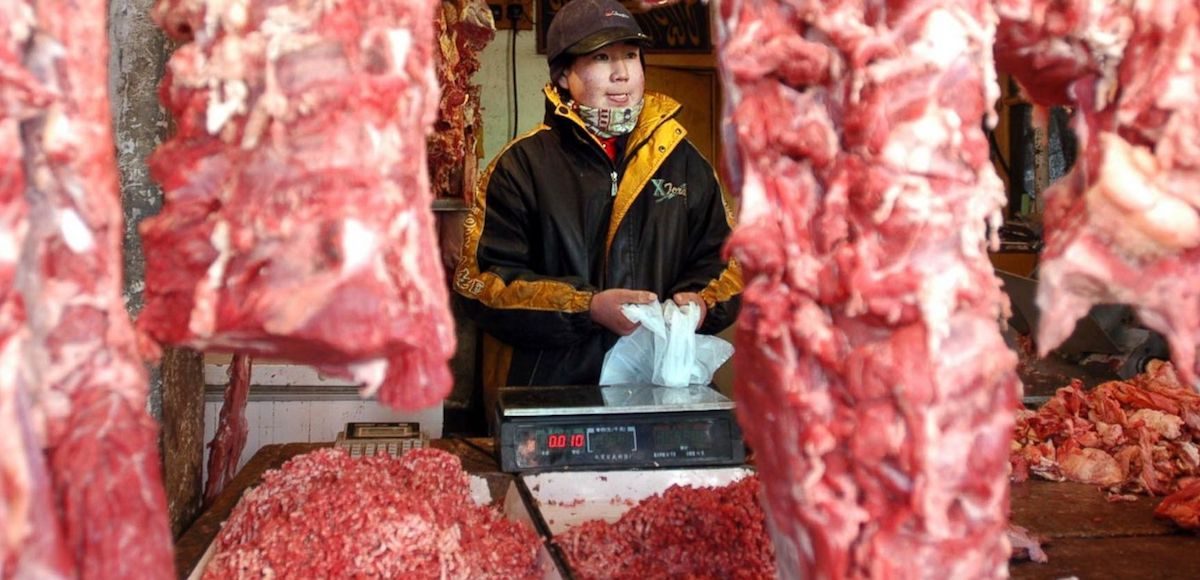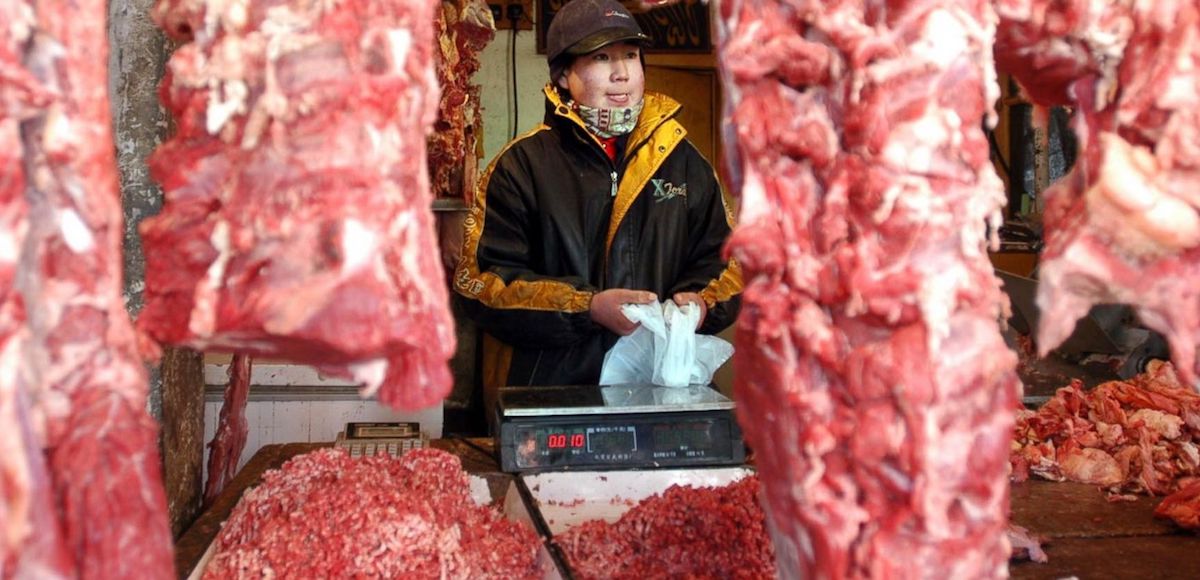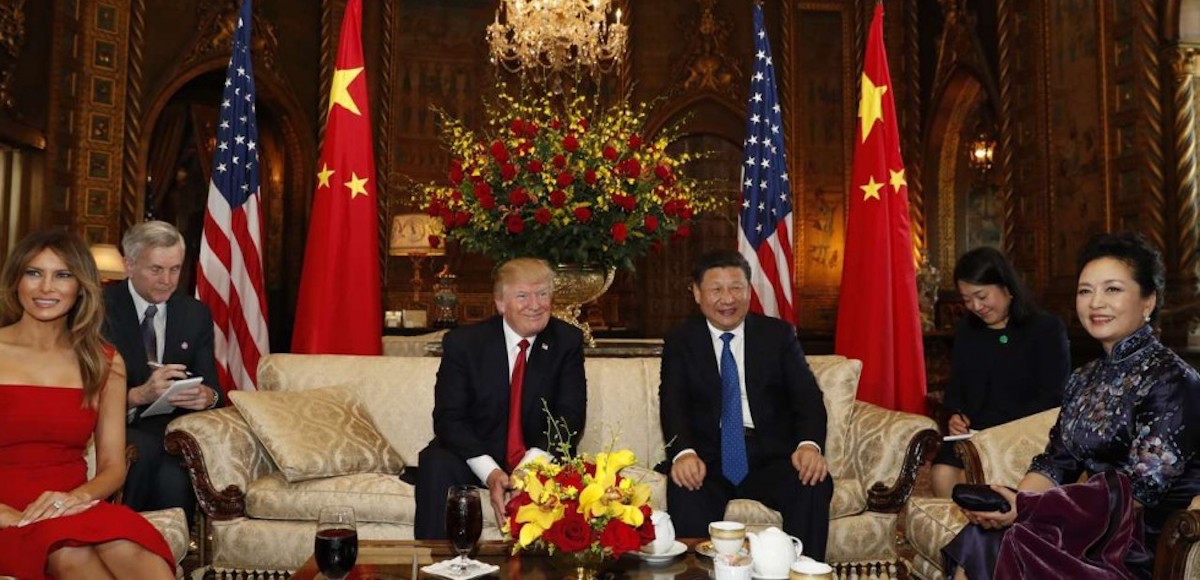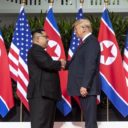

In this Jan. 22, 2003 file photo, a Chinese shopkeeper stands behind a row of beef products at an open air market in Beijing, China. China will finally open its borders to U.S. beef while cooked Chinese poultry is closer to hitting the American market as part of a U.S.-China trade agreement. Trump administration officials hailed the deal as a significant step in their efforts to boost U.S. exports and even America’s trade gap with the world’s second-largest economy. (Photo: AP)
China has agreed to open its borders to U.S. beef, natural gas, poultry and other exports under a U.S.-China trade agreement negotiated by the Trump Administration. In return for ending China’s ban on beef imports, the U.S. is one step closer to allowing cooked Chinese poultry to be sold in American supermarkets.
Trump administration officials hailed the deal as a significant advance toward boosting U.S. exports and closing America’s trade gap with the world’s second-largest economy. U.S. trade experts offered a more muted assessment, calling the agreement a modest fulfillment of past assurances made by China.
“This is more than has been done in the whole history of U.S.-China relations on trade,” Commerce Secretary Wilbur Ross told reporters late Thursday at the White House.
He called the deal “a herculean accomplishment” that was the result of President Donald J. Trump’s wildly successful meeting with President Xi Jinping in April. Vice Finance Minister Zhu Guangyao told reporters in Beijing the results of the agreement were proof that economic collaboration between the two sides “couldn’t be closer.”
The deal also allows lower long-standing barriers that have affected matters ranging from agriculture to the operation of American financial firms in China.
In the past, previous administrations have hailed agreements that never came to fruition, and enforcement will be key. The Trump Administration through executive order has granted U.S. trade officials and agencies wider authority.

Presidents Donald J. Trump and Chinese President Xi Jinping sit with first ladies Melania Trump and Peng Liyuan before dinner at Mar-a-Lago in Palm Beach, Florida, on April 6. (Photo: AP)
President Trump made the enormous U.S. trade deficit, especially the gap with China, a major issue in his campaign and has continued to stress it during the early days of his administration. The U.S. trade deficit with China totaled $310 billion last year, the largest of any nation by far.
He’s argued that America’s perennial trade gaps have cost millions of factory jobs and he has pledged to take a tougher stance in trade negotiations to lower the imbalances.
The Energy Department authorized natural gas shipments of 19.2 billion cubic feet per day to China and others, while the United States is inviting Chinese companies to import U.S.-produced liquefied natural gas.
It would also ease import restrictions on agricultural goods, which was imposed with the beef ban in 2003 after a case of mad-cow disease. In exchange, the U.S. would allow the sale of cooked Chinese poultry. Secretary Ross said the poultry import could be done safely.
Other details include streamlining the evaluation of U.S. biotechnology product applications, and allowing American-owned suppliers of electronic payment services to start licensing in China. Chinese banks could get access to the U.S. banking market and China will open its market to U.S. credit rating agencies and credit card companies.
The bilateral agreement started to take shape after President Trump met with Chinese President Xi Jinping at his Mar-a-Lago estate. The two also agreed to hold talks this summer to be led by Secretary Ross, Treasury Secretary Steven Mnuchin and Vice Premier Wang Yang with a goal to work on a one-year plan.
“Both sides have a deep and close understanding that the U.S.-China economic relationship can’t be politicized.” said Vice Finance Minister Zhu.






